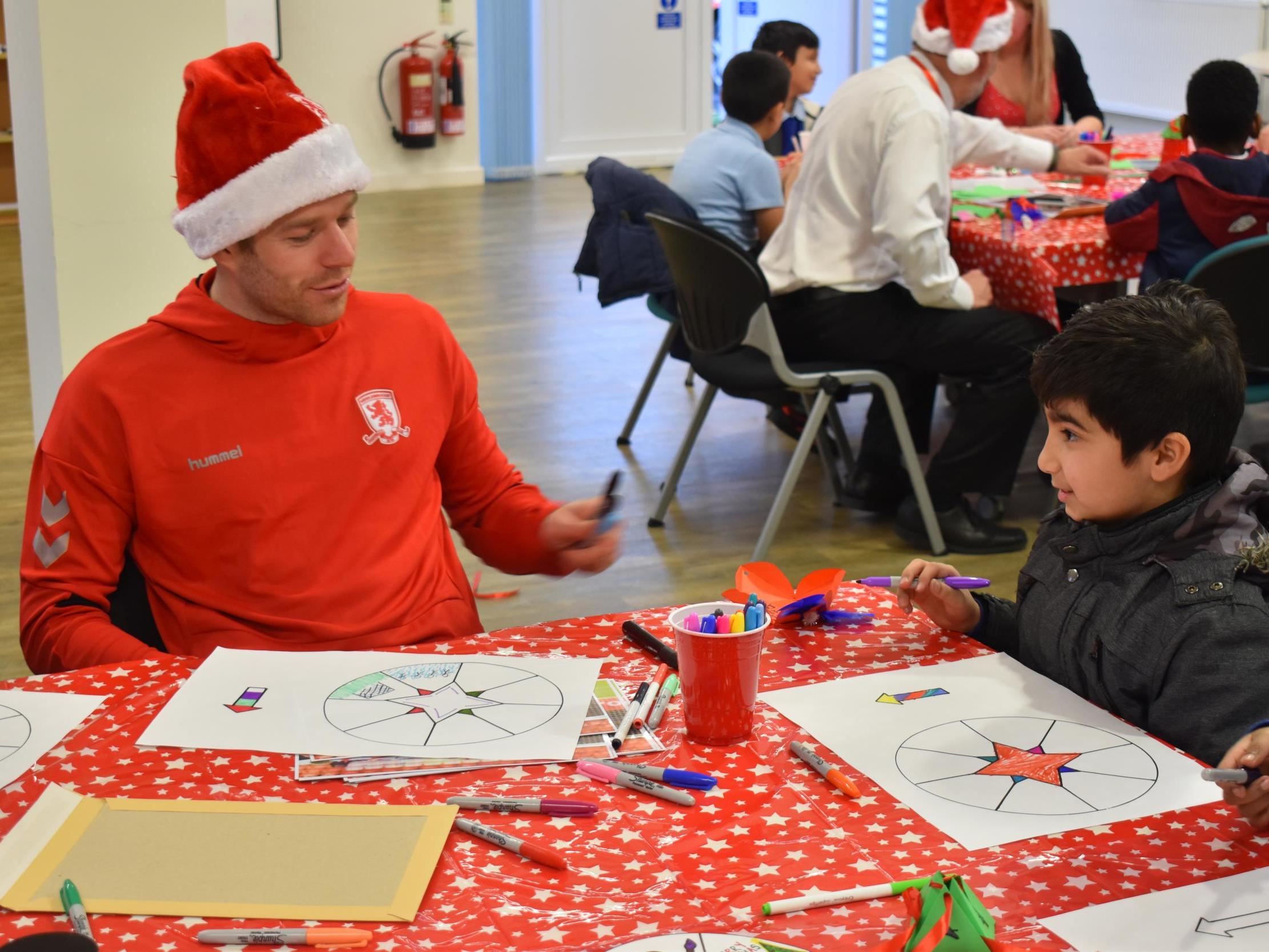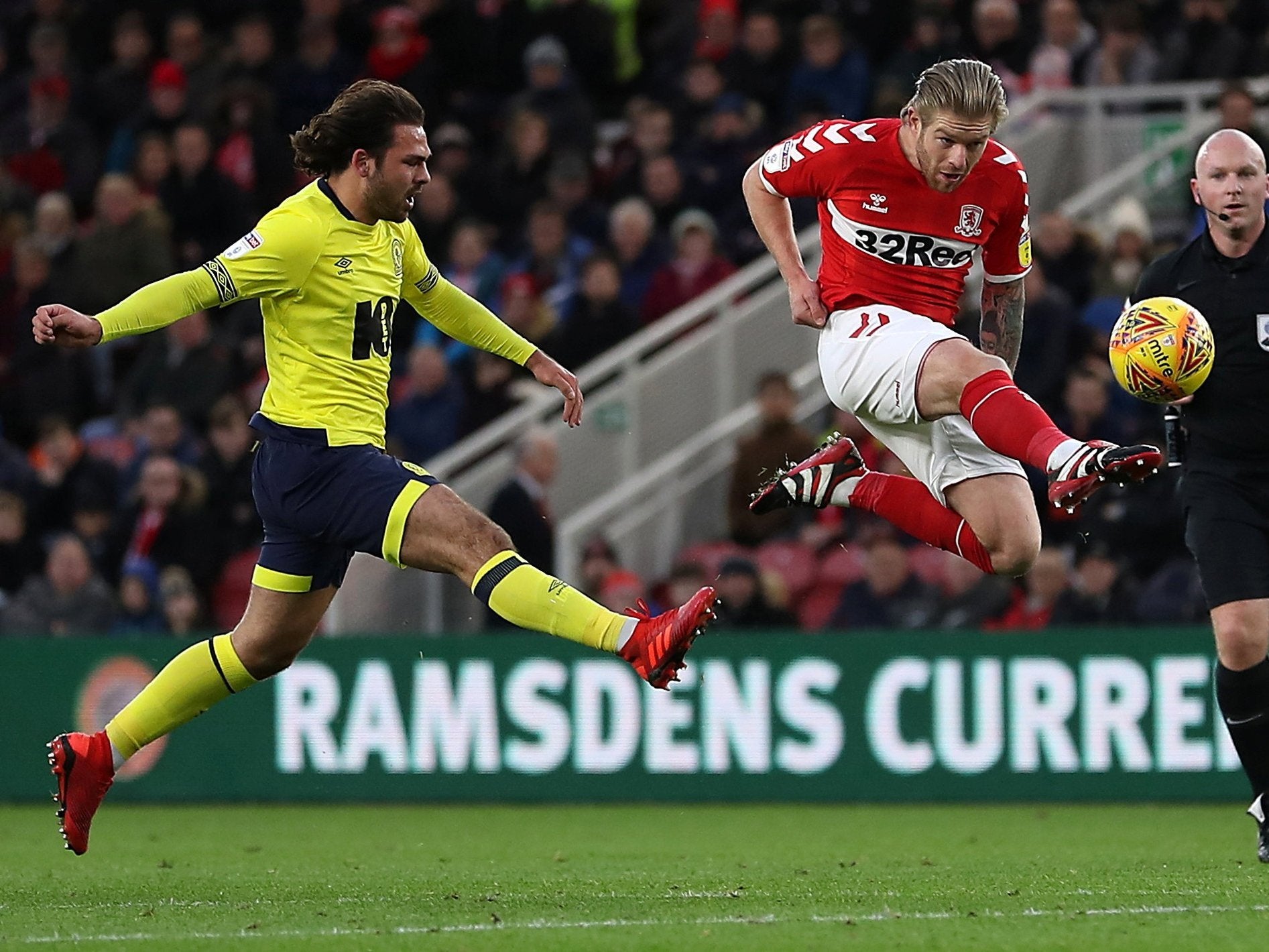Middlesbrough’s Adam Clayton: ‘The dressing room is an unforgiving world. It can get on top of you’
Exclusive interview: In a town where mental health problems are all too common, club captain Adam Clayton praises the virtues of reaching out to friends and family and reflects on his own internal struggles

Your support helps us to tell the story
From reproductive rights to climate change to Big Tech, The Independent is on the ground when the story is developing. Whether it's investigating the financials of Elon Musk's pro-Trump PAC or producing our latest documentary, 'The A Word', which shines a light on the American women fighting for reproductive rights, we know how important it is to parse out the facts from the messaging.
At such a critical moment in US history, we need reporters on the ground. Your donation allows us to keep sending journalists to speak to both sides of the story.
The Independent is trusted by Americans across the entire political spectrum. And unlike many other quality news outlets, we choose not to lock Americans out of our reporting and analysis with paywalls. We believe quality journalism should be available to everyone, paid for by those who can afford it.
Your support makes all the difference.Adam Clayton is sitting with school children, colouring in his wheel of choices. First there is a drawing of a goal and a football pitch, then a swimming pool and then a cup of tea. They are recalling happy events in a room full of smiles.
Only later will Clayton talk about his flirtation with darkness. At the Middlesbrough and Stockton Mind Centre, they look for the light; of heart, and of head. “Everyone struggles to cope, at some point,” their tagline goes.
Middlesbrough has reason more than most to actively tackle mental health problems. The suicide rate in the town is 70 per cent higher than the national average.
“People suffer in silence, without a doubt,” says Clayton, the Middlesbrough captain. “The previous generation to us suffered a lot. There’s more and more charities like this. The stigma of coming out and talking is disappearing a little bit.
“It is still there, obviously, but I’m sure there are a lot of people out there who are suffering. When it’s in your own brain, you suffer alone. If you get to the point you don’t want to be anymore, that’s a major issue, so maybe the little steps at the start can stop you getting there.”
Adam Clayton was seven when he joined Manchester City. It was a different club then, but his life was mapped out from there; football and more football – but never weakness. He landed in the north east in 2014, after spells with Leeds and Huddersfield.
“Football is a sport where you don’t want to say something that people might think negative of you for,” he adds. “Mental injuries. People might think you’re weak, but mental injuries are like pulling a hamstring. You might be all right for 10 years but you might have one week where you’re off. It’s like a strained muscle, you might be out of sync, you might be anxious.
“If there’s a player who says that he’s not been over-anxious for at least one week of his career, then I’m telling you he’s lying. It happens. People can take it in different ways.

“I know people who have been through really bad situations and they’ve managed to drag themselves out of it just by talking to family and friends. It took them too long to do it because they didn’t want to come across in a negative manner.
“It needs to be spoke about to get rid of. If there is someone you can go and talk to, it might not be in your inner circle, completely off the record, you can go and sort it out.”
Clayton’s own troubled period came last season, left out for the first time, down, withdrawn, and then, more worryingly, suffering from fatigue.
“I had a bad time last year when I came out of the team,” he says. “I hadn’t been out the team for six or seven years. You’re like ‘What’s going on here?’
“For the first month I was just like ‘It’s the manager, he doesn’t like me, nothing to do with me’. All these thoughts going on in your head all the time, and that can be damaging. After a month and a bit, I was like, ‘I feel tired all the time’. I had this argument in my brain, ‘Can I still do it?’ which is normal.
“My dad had sussed it out from the first day I didn’t play. He’s been driving me around to football since I was seven. He was like, ‘Are you all right?’ I’m like, ‘I’m fine, I’m fine, I’m fine’. I met up with him in my house, he always come round on a Friday night. We spoke about things and the next day I felt refreshed, it was a different challenge and I was back in the team within another month.
“It’s the trials and tribulations of life and you need people to help you through certain things. You’ve not got to be scared to talk about it.”
At the Middlesbrough and Stockton Mind Centre, Clayton and the children draw on. Christmas is coming and there is the hum of excitement. The wheel of choice is drawn by everyone, to present a different choice to anger, to find happiness. The centre stresses its preference to preventative action. It aims to raise the confidence of youngsters, to fend of anxiety and withering self-esteem.

“The things they do for everyone, for kids and to increase mental awareness is brilliant,” adds Clayton. “It’s something I’m really keen to do more stuff with, individually. I want to do more to help them. The big thing is they are here for people. You can talk to them.
“For a footballer, the dressing room is an unforgiving world. If you have a bad game you will get absolutely battered, hammered, ‘What about that pass you did!’ and it goes on. You think about it. Everyone does.
“It can get on top of you, no matter how mentally or physically strong you are. Tyson Fury went through a bad spell and he’s about seven foot five, never been beaten in a boxing ring and he had mental health problems. It can happen to anyone.”
Middlesbrough and Stockton Mind is an official charity partner of Middlesbrough FC for the 2018/19 season.
Join our commenting forum
Join thought-provoking conversations, follow other Independent readers and see their replies
Comments